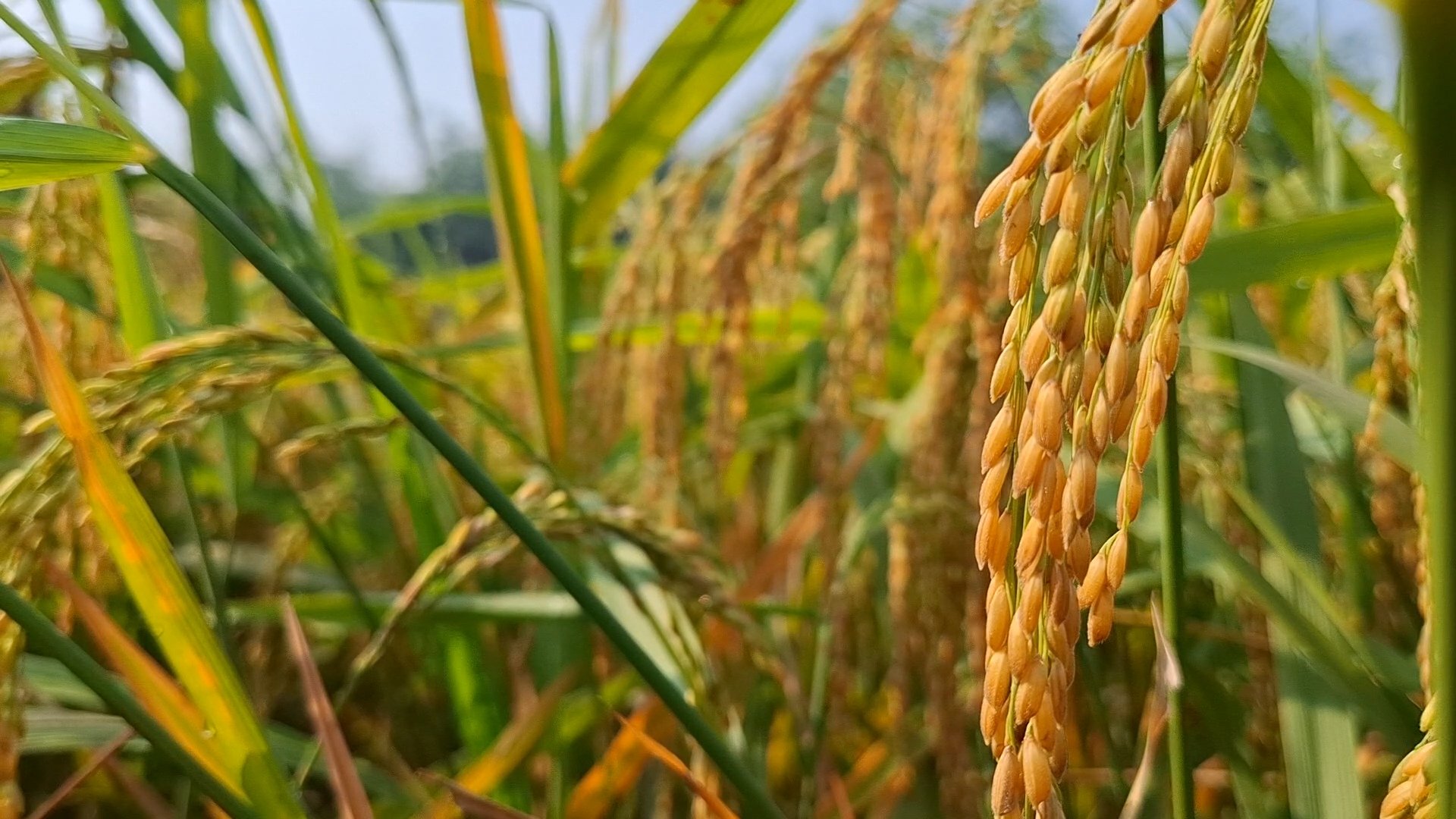News Flash
News Flash

JHENAIDAH, Nov 13, 2025 (BSS) - Abdur Rahim, a farmer of Sadar upazila, has achieved remarkable success in cultivating jhum paddy on previously barren land, offering new hope to local farmers.
His success is drawing attention to neighboring farmers, who are inspired by his high yield and low-cost cultivation method.
Traditionally, jhum paddy is grown on the slopes of hills, with distinct varieties of paddy thriving in hilly terrains. However, this time, Rahim has cultivated ‘Sentu Pajam 21’ variety of rice in the plain land and the results have been impressive.
Rahim planted the variety on his land in Ramnagar village, located in Kumrabaria union of Sadar upazila, and his crop has flourished.
The Sentu Pajam 21 rice, originating from the hilly regions of Sherpur, Jamalpur, and Netrokona, is known for its resilience and high yield when cultivated in the slopes of hills.
The rice variety was invented by Sentu Kumar Hajong, a farmer from Nalitabari in Sherpur, and named after him.
Rahim learned about this unique rice variety online and, after seeing its potential, decided to try growing it in Jhenaidah. He ordered just 3 kg of seeds through a courier service, and the rest, as they say, is history.
"I bought 3 kg of seeds online, and they arrived from Sherpur," Rahim shared with BSS.
"I planted them during the current Aman rice planting season. Surprisingly, this rice requires less than 10 percent of the irrigation normally needed for Aman rice, and it uses very little fertilizer and pesticides. The production cost is only about Taka 7 to 8 thousand per bigha."
Rahim planted the variety on 10 kathas of land, and the results have been remarkable. The yield is expected to be between 25 to 26 maunds per 10 kathas of land—a significant return on the low cost of cultivation.
Rahim also distributed some seeds to his nephew and a neighbor, who have also seen good yields on their land.
Encouraged by this success, Rahim plans to expand the cultivation of this rice variety in the coming season.
"My neighbor, Tulu Mia, was initially skeptical about the paddy. He thought it wouldn’t yield well without irrigation and fertilizers," Rahim said. "But now, seeing the results, he’s amazed. The yield is so high at such a low cost—it's a rare sight."
Tulu Mia, a fellow farmer from the same village, confirmed this sentiment.
"I used to think that paddy couldn’t grow well without the usual amount of irrigation and fertilizers. But now, seeing Abdur Rahim’s field, I can’t believe how much he has harvested at such a low cost. It's unbelievable!"
Sadar upazila agriculture officer, Md. Nur A Nabi, expressed his surprise and optimism about the cultivation of Sentu Pajam 21 rice in the plains. "This rice requires much less irrigation than Aman rice, and we’ve used only limited fertilizer and pesticides.
Insect attacks are also fewer, making it an ideal crop for farmers in this region. We’re amazed by the results and hope this success will inspire more farmers to try growing this rice variety."
The Sentu Pajam 21 rice is a high-yielding hybrid created by crossing domestic pajam rice with Indian Ranjit rice.
Traditionally grown in the hilly regions of Jamalpur, Sherpur, and Netrokona, it is now being successfully cultivated on the plains of Jhenaidah, proving that innovation and the right techniques can make a significant difference in agricultural practices.
With this success story, the local agriculture department is hopeful that Sentu Pajam 21 will become a promising alternative for farmers in Jhenaidah, potentially transforming the landscape of rice cultivation in the region.